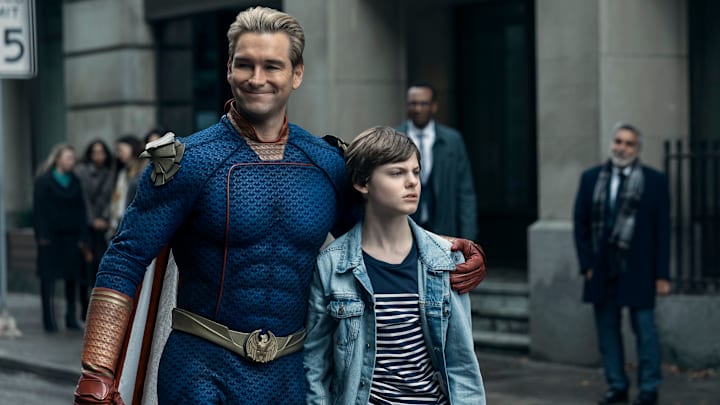The Boys is not for the faint of heart. Fans of the show know very well that this isn’t your typical superhero show. And the term hero is used very loosely. The unique depiction of heroes in a modern world is partly why we love The Boys. Four seasons into a show nearing its end, and we can safely say it is easily one of the greatest shows ever created for its unique approach to heroism—or lack thereof.
We get to see a group of heroes that mimic the Justice League and the Avengers, more of the former due to four of the main heroes: Queen Maeve is akin to Wonder Woman, A-Train resembles The Flash, and The Deep mirrors Aquaman.
Through its satirical lens, The Boys explores themes of corruption and what happens when it goes unchecked. We get to see what happens without checks and balances in the realm of a world where superheroes and those with powers exist in the age of social media. Those with superpowers, simply named Supes, could live a life without consequences, that is if you know the right people—Vought.
Yes, the name of those who control the Justice League of this world, aka The Seven, is called Vought. This conglomerate epitomizes corporate greed and manipulation, presenting a public facade of heroism while hiding the dark truths of their operations.
Season 1: The True Nature of Heroes
Season 1 introduces us to the true nature of these heroes. Homelander, the leader of The Seven, is revealed to be a sociopathic and narcissistic figure who abuses his power with impunity. The season also depicts A-Train’s reckless behavior resulting in the death of Hughie Campbell’s girlfriend, highlighting the lack of accountability for the Supes.
Season 2: Deepening Corruption
Season 2 takes a deep dive into Vought’s corruption with the introduction of Stormfront. This chick not only espouses racist ideologies but also reveals Vought’s Nazi origins. The season further exposes the manipulation of public perception through social media and marketing, showing how Vought controls narratives to maintain their power and profit.
Season 3: Unchecked Authority
Season 3 continues to unravel the consequences of unchecked authority with the introduction of Soldier Boy, a former hero with a violent and unstable past. His return forces the characters to confront the long-term impacts of Vought’s actions and the legacy of their exploitation and corruption.
Season 4: Internal Conflicts and Resistance
Season 4 builds on these themes, focusing on the internal conflicts within The Seven and Vought’s increasing desperation to maintain control. The season illustrates the fractures within the team and the growing resistance against Vought’s authoritarian grip. It also highlights the personal toll of living in a world where power is unchecked and accountability is nonexistent.
Through the seasons, The Boys consistently highlights the dangers of absolute power and the critical need for accountability and oversight. The show’s dark humor and brutal honesty provide an interesting critique of modern-day hero worship and the complex relationship between power, corruption, and morality.
